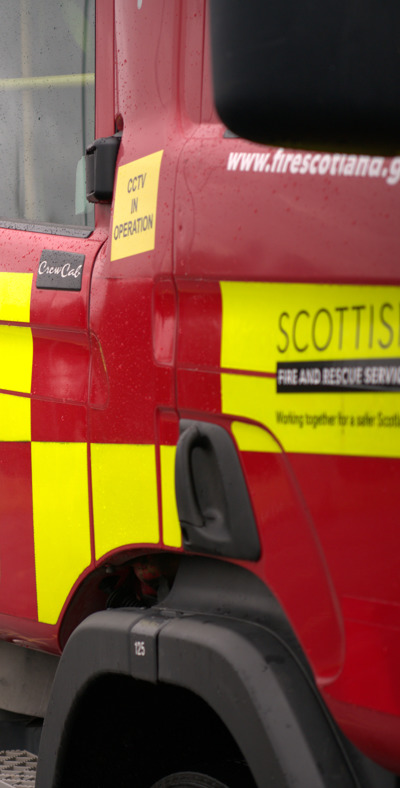Incident statistics 2024-25 reveal house fires at record low
New statistics have been released by the Scottish Fire and Rescue Service revealing record low number of house fires in Scotland.

House fires in Scotland have fallen to a record low – but concerning new figures reveal than more than one quarter of affected homes didn’t have a smoke alarm fitted.
New statistics from the Scottish Fire and Rescue Service (SFRS) show that firefighters responded to 4,104 house fires last year, a 3.6% reduction on the previous year and a drop of 26.4% since 2014-15.
In Scotland, it is the law for all households to have interlinked smoke and heat alarms in place.
SFRS Deputy Chief Officer (DCO) Andy Watt said: “We’re pleased to see a further reduction in accidental house fires – but it’s concerning that so many of these incidents occurred in homes without a working smoke alarm fitted.
“Smoke alarms save lives – they provide vital early warning and allow people to act quickly.
“It is essential that households make sure they have a smoke alarm fitted, or check their current alarm is working. It could save a life.”
During 2024-25, firefighters across Scotland attended more than 74,000 emergencies – a reduction of nearly 6,000 from the previous year.
This includes 22,925 fires and 16,209 non-fire incidents such as flooding and road traffic collisions.
More than 55% of all fires were set deliberately, placing a needless drain on emergency service resources.
DCO Watt said: “Deliberate fire setting is not only reckless, but it can damage communities and endanger lives.
“Our staff across Scotland work extremely hard to engage with the public to prevent these types of incidents.
“We will keep working with our partners to prevent these unwanted incidents, but everyone has a role to play in preventing deliberate fires.”
There were 36 fire-related deaths recorded last year, down from 42 in 2023-24.
Unwanted fire alarm signals (UFAS) are down from 17,096 to 12,189 from the previous year – a reduction of almost one third. This follows a change in policy in 2023 where SFRS now only responds to alarm activations at commercial buildings where this is a sleeping risk, or clear sign of fire.
DCO Watt added: "Changing how we respond to automatic fire alarms at commercial buildings has helped to reduce the number of unnecessary blue light journeys undertaken by our firefighters.
"We welcome this reduction but we know there’s more work to do, and we remain committed to working with our partners and businesses to build on this."
View our full statistics publication.

